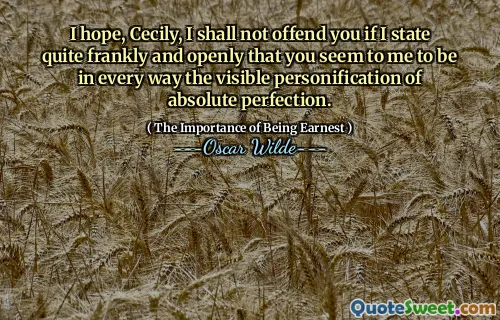"The Importance of Being Earnest" is a comedic play by Oscar Wilde that satirizes Victorian society’s attitudes towards marriage, identity, and social convention. The story revolves around two main characters, Jack and Algernon, who create alter egos to escape their responsibilities and pursue their romantic interests without societal constraints. Jack pretends to be "Ernest" when he is in London, while Algernon invents a fictitious friend named Bunbury to avoid social obligations.
The humorous narrative unfolds as both characters’ deceptions lead to a series of misunderstandings and comedic situations, particularly when they both fall in love with women who are enamored with the name "Ernest." Their lies complicate their lives, leading to a chaotic engagement scenario ripe with irony and wit. Wilde uses their antics to critique the superficiality of social expectations, especially regarding marriage.
The play culminates in a series of revelations and resolutions that highlight the absurdity of the lengths people will go to in order to maintain their societal image. Ultimately, the narrative suggests that honesty and authenticity are more commendable than the trivial pursuit of social approval, making "The Importance of Being Earnest" a timeless reflection on human behavior and societal norms.
More »
Today Birthdays
1955 -
Max Lucado
1946 -
John Piper
1842 -
William James
1907 -
Abraham Joshua Heschel
1887 -
Aldo Leopold
1755 -
Alexander Hamilton
1976 -
Alethea Kontis
1971 -
Mary J. Blige
1825 -
Bayard Taylor
1943 -
Jim Hightower
1885 -
Alice Paul
1923 -
Carroll Shelby
1928 -
David L. Wolper
1954 -
Kailash Satyarthi
1972 -
Amanda Peet
1946 -
Naomi Judd
1970 -
Malcolm D. Lee
1955 -
Christian Marclay
1973 -
Rahul Dravid
1987 -
Jamie Vardy
1942 -
Clarence Clemons
1992 -
Fatima Sana Shaikh
1948 -
Larry Harvey
1930 -
Rod Taylor

